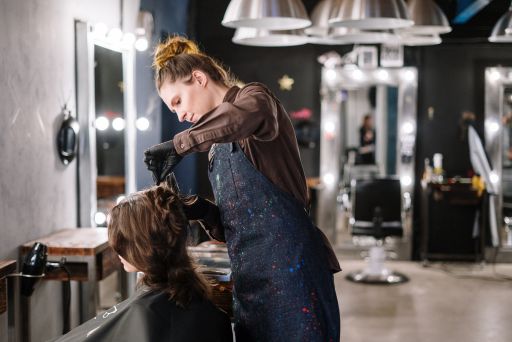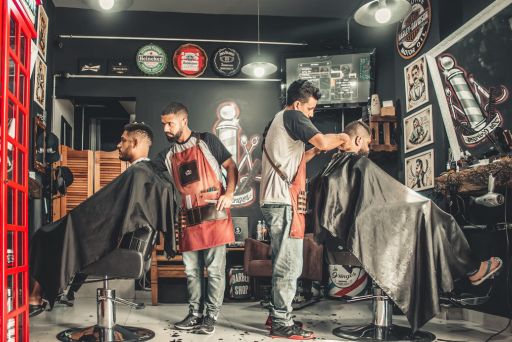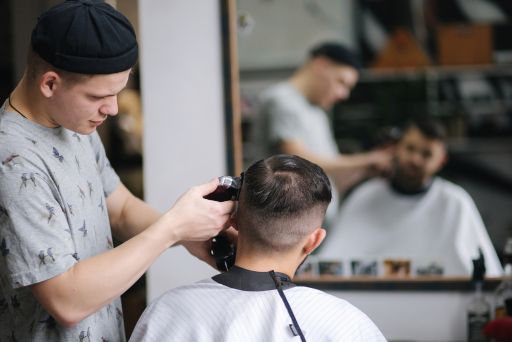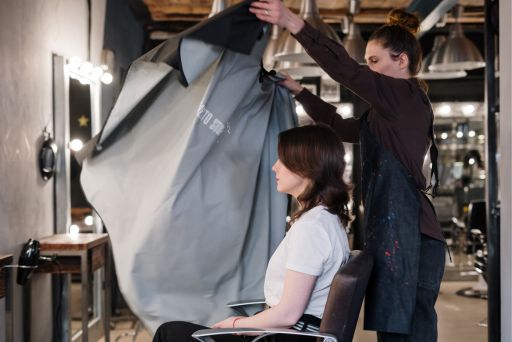In the realm of business expenses, professionals often wonder about the extent to which they can deduct expenses related to their trade. One common query that arises is whether haircuts qualify as a tax deduction. Understanding what constitutes a legitimate business expense and what falls under the category of personal expenses is crucial for small business owners and independent contractors alike. This article delves into the intricate world of tax deductions and explores the question: Can you write off haircuts as a business expense?

Understanding Business Expenses
Business expenses encompass a wide array of costs that are necessary for operating a business. These expenses are deductible from the taxable income of a business, thereby reducing the amount of taxes owed. However, the IRS imposes certain guidelines and limitations on what can be considered a legitimate business expense.
To qualify as a tax deductible expense, the cost must be both ordinary and necessary for the operation of the business. While ordinary expenses are common and accepted in a particular trade or industry, necessary expenses are those that are helpful and appropriate for the business. Personal expenses, on the other hand, are generally not considered tax write off.
Haircuts as Business Expenses: What the IRS Says
The IRS has clear guidelines regarding the deductibility of personal expense, personal grooming expenses, including haircuts. According to the IRS, personal grooming and personal appearance expenses are typically considered personal expenses and are not tax deductible. This means that the cost of routine haircuts to maintain one’s personal appearance is generally not eligible for deduction.
Exceptions and Specific Circumstances
While personal grooming expenses are usually not deductible, there are certain circumstances in which they may be considered business expenses. For example, if haircuts are directly related to the individual’s business purposes, such as in the entertainment industry or for work-related photoshoots, they may be deductible.

Who Is Eligible to Claim Personal Grooming as a Deduction?
To qualify for any deduction, the expense must be directly linked to your business. If you work in the entertainment industry, where maintaining a specific appearance is integral to your profession, you may be eligible to deduct grooming expenses.
For Actors/Models:
Actors often undergo transformations to suit the roles they play, necessitating makeup, hairstyling, and cosmetic accessories. These expenses can be deducted since they are directly related to the trade or business of acting. Similarly, models can claim expenses such as haircuts, wigs, clothing, and styling accessories.
Performing Artists:
Performing artists can deduct expenses associated with specific roles they undertake. For instance, if tinted contact lenses or special glasses are required for a role, the cost can be claimed. However, these lenses must be cosmetic and used for an existing role, not for auditions. Prescription contacts or glasses are considered medical expenses and cannot be claimed as business deductions.
Dancers:
Dancers or entertainers who require specialized makeup, wigs, or clothing for performances may qualify for deductions.
Musicians:
Musicians often cultivate a unique persona that contributes to their success as performers. Expenses related to appearance, including hairstyles, clothing, makeup, and tattoos, can be deducted.
Certain other professions may also allow deductions for hair care expenses as a tax write-off.

Industry Standards and Professional Expectations
In certain professions where physical body appearance is integral to the job, such as in the entertainment or fashion industry, the cost of maintaining one’s appearance may be considered an ordinary and necessary business expense. Professional athletes, actors, and models often incur expenses related to personal grooming and physical appearance that are in line with industry standards.
Hair Care for Professional Purposes
Professional bodybuilders, models, and other professionals in similar fields often invest in hair care, body oils, and other products to maintain their appearance according to the expectations of their industry. In such cases, these expenses may be deductible as they directly contribute to the individual’s professional image and brand.
IRS Requirements and Documentation
In the event that a taxpayer seeks to deduct haircut expenses as business expenses, it is imperative to maintain accurate records and documentation to support the deduction. The IRS requires taxpayers to keep detailed records of all business expenses claimed on their tax returns. This includes receipts, invoices, and other proof of expenses incurred.
Conclusion
While the IRS generally does not allow deductions for personal grooming expenses, there are exceptions and specific circumstances in which haircuts and other personal grooming expenses may qualify as business expenses. It is essential for taxpayers to understand the rules and guidelines set forth by the IRS and to keep meticulous records to support any deductions claimed on their tax returns. Consulting with a tax professional or accountant can provide invaluable guidance in navigating the complexities of tax law and deductions.
In summary, while haircuts are generally considered personal expenses, there are instances where they may qualify as business expenses under specific circumstances and in accordance with industry standards. As with any tax deduction, it is essential to adhere to the IRS guidelines and maintain accurate documentation to support the deduction claimed.

FAQs: Can You Write Off Haircuts as a Business Expense?
What are business expenses, and why are they important for tax purposes?
Business expenses are costs necessary for operating a business. They are deductible from taxable income, reducing the amount of taxes owed. Understanding what constitutes a legitimate business expense is crucial for tax purposes.
How does the IRS define tax deductible expenses?
To be tax deductible, expenses must be both ordinary and necessary for the operation of the business. While ordinary expenses are common in a particular trade or industry, necessary expenses are helpful and appropriate for the business. Personal expenses are generally not deductible.
Are haircuts considered tax deductible business expenses according to the IRS?
Generally, the IRS considers personal grooming expenses, including haircuts, as personal expenses and not tax deductible. Routine haircuts to maintain personal appearance are typically not eligible for deduction.
Are there any exceptions where haircuts can be considered business expenses?
Yes, there are exceptions. In industries like entertainment where maintaining a specific appearance is integral to the profession, grooming expenses may be deductible. Actors, models, performing artists, dancers, and musicians may be eligible to deduct grooming expenses directly related to their business activities.
What documentation is necessary to claim haircut expenses as business deductions?
Taxpayers must maintain accurate records and documentation to support any deduction claimed on their tax returns. This includes receipts, invoices, and other proof of expenses incurred. Consulting with a tax professional can offer guidance in navigating the complexities of tax law and deductions.

